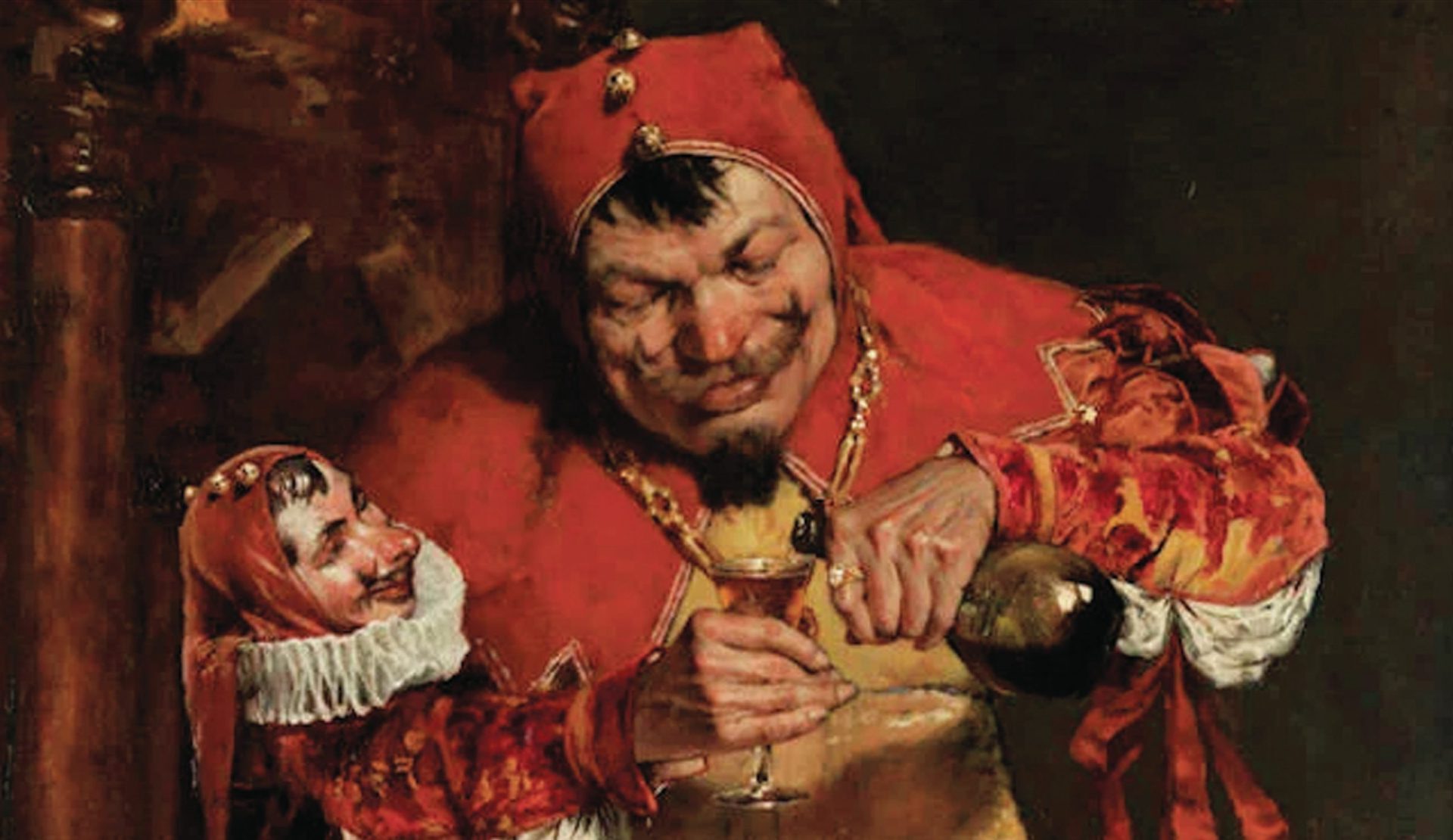
Who was Triboulet? Triboulet, a jester in the French court during the reigns of Louis XII and Francis I, was known for his sharp wit and outrageous antics. What made him famous? His quick tongue often landed him in trouble, but his cleverness usually saved him. Why is he remembered today? Triboulet's legacy lives on through stories of his humorous escapades and his unique ability to mock the powerful without losing his head—literally. What can we learn from him? His life teaches us the value of humor, wit, and the delicate balance of speaking truth to power. Ready for more? Let's dive into 35 fascinating facts about this legendary jester!
Key Takeaways:
- Triboulet, the famous French court jester, used his sharp wit to entertain and provide counsel to kings Louis XII and Francis I. His clever humor and audacity made him a legendary figure in history.
- Triboulet's legacy as a fearless and quick-witted jester influenced literature and culture, inspiring characters in plays and operas. His life story serves as a reminder of the power of humor and wit in shaping history.
Who Was Triboulet?
Triboulet was a famous jester in the French court during the late 15th and early 16th centuries. Known for his sharp wit and humorous antics, he served under two kings, Louis XII and Francis I. His life was filled with fascinating events and peculiarities.
- Triboulet's real name was Nicolas Ferrial.
- He was born around 1479 in Blois, France.
- Triboulet was known for his physical deformities, which included a hunchback and a large head.
- Despite his appearance, he was highly intelligent and quick-witted.
- Triboulet's humor often pushed the boundaries of what was acceptable at court.
Triboulet's Role in the French Court
As a jester, Triboulet had a unique position in the court. He could speak freely and mock the nobility without fear of retribution, a privilege not many enjoyed.
- He served King Louis XII from 1498 to 1515.
- After Louis XII's death, Triboulet continued his service under King Francis I.
- Triboulet's role was not just to entertain but also to provide counsel through humor.
- He often used his position to highlight the absurdities and injustices of the court.
- Triboulet's sharp tongue sometimes got him into trouble, but his wit usually saved him.
Famous Anecdotes About Triboulet
Triboulet's life was filled with memorable stories that showcased his cleverness and audacity. These anecdotes have been passed down through history, adding to his legendary status.
- One famous story involves Triboulet slapping King Francis I on the backside.
- When the king threatened to execute him, Triboulet cleverly asked for a pardon in the form of choosing his own death.
- Triboulet chose to die of old age, a request that amused the king and saved his life.
- He once insulted a noblewoman, leading to a decree that he could only insult those who insulted him first.
- Triboulet's quick thinking often turned potentially dangerous situations into humorous ones.
Triboulet's Influence on Literature and Culture
Triboulet's legacy extends beyond his lifetime, influencing literature, theater, and popular culture. His character has been adapted and referenced in various works.
- Victor Hugo's play "Le Roi s'amuse" features a character inspired by Triboulet.
- This play was later adapted into the opera "Rigoletto" by Giuseppe Verdi.
- Triboulet's character in "Rigoletto" is portrayed as a tragic figure, highlighting the darker aspects of his life.
- His life and antics have been the subject of numerous books and articles.
- Triboulet's influence can be seen in the archetype of the clever jester in literature and media.
Triboulet's Personality and Traits
Triboulet was not just a jester; he was a complex individual with a unique personality. His traits made him both loved and feared in the court.
- He was known for his fearless attitude.
- Triboulet had a sharp sense of humor that often bordered on the offensive.
- Despite his harsh jokes, he was deeply loyal to the kings he served.
- Triboulet had a keen sense of justice and often used his humor to criticize unfair practices.
- His intelligence and wit made him a valuable asset to the court.
The End of Triboulet's Life
Triboulet's life came to an end in the early 16th century, but his legacy lived on. His death marked the end of an era for the French court.
- Triboulet died around 1536.
- The exact cause of his death is unknown, but it is believed to be natural causes.
- His death was mourned by many in the court, including King Francis I.
- Triboulet's legacy continued to influence jesters and entertainers for generations.
- His life story serves as a reminder of the power of humor and wit.
Interesting Facts About Triboulet
Triboulet's life was filled with interesting and lesser-known facts that add to his mystique. These tidbits provide a deeper understanding of who he was.
- Triboulet was one of the few jesters to serve two different kings.
- He was known to have a love for animals, often keeping pets in the court.
- Triboulet's humor was sometimes dark, reflecting the harsh realities of court life.
- He had a talent for mimicry, often imitating the voices and mannerisms of courtiers.
- Triboulet's influence extended beyond France, with his stories being told in other European courts.
The Legacy of Triboulet
Triboulet's life offers a fascinating glimpse into the world of medieval jesters. His quick wit and bold antics made him a memorable figure in the French court. Despite his physical deformities, Triboulet used humor to navigate the complexities of court life, leaving a lasting impression on history. His story reminds us that humor can be a powerful tool, even in the most challenging circumstances. Triboulet's legacy lives on, inspiring countless tales and legends. Whether you're a history buff or just love a good story, Triboulet's life is a testament to the enduring power of laughter. So next time you hear a joke, think of Triboulet and the incredible impact one jester had on the world.
Frequently Asked Questions
Was this page helpful?
Our commitment to delivering trustworthy and engaging content is at the heart of what we do. Each fact on our site is contributed by real users like you, bringing a wealth of diverse insights and information. To ensure the highest standards of accuracy and reliability, our dedicated editors meticulously review each submission. This process guarantees that the facts we share are not only fascinating but also credible. Trust in our commitment to quality and authenticity as you explore and learn with us.


